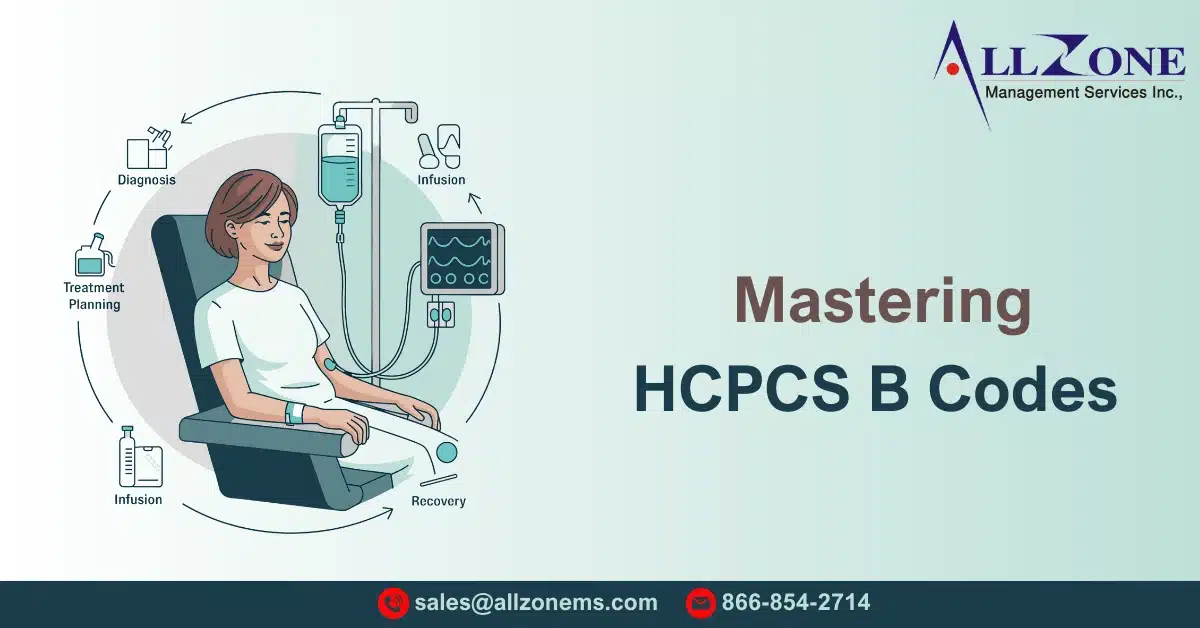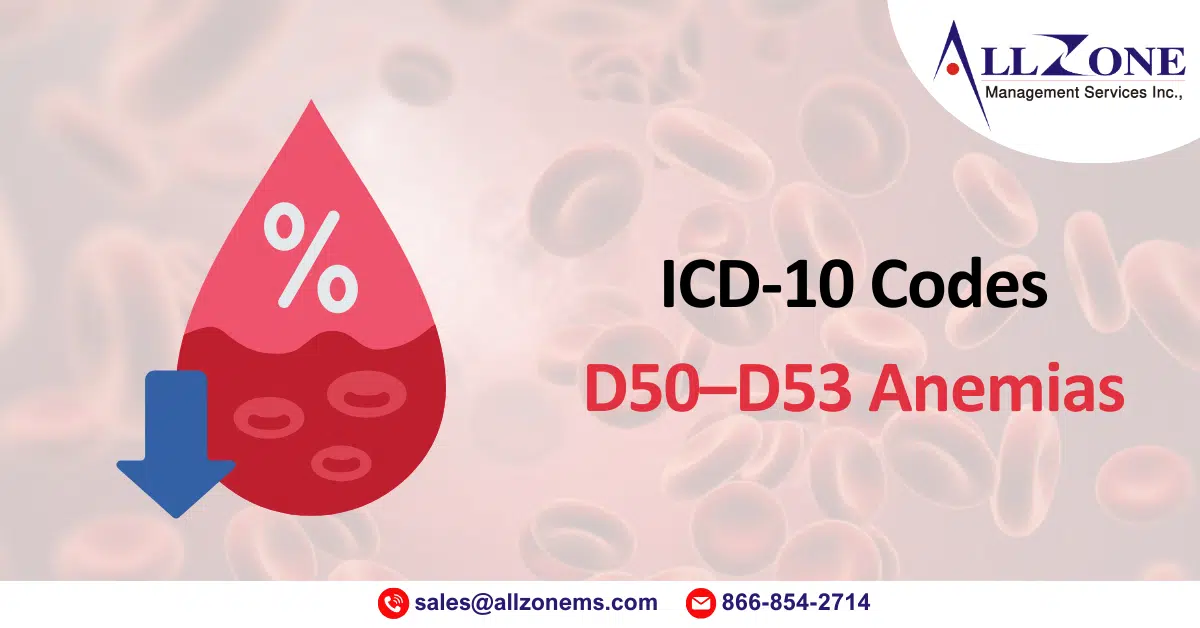Enteral and parenteral therapies play a critical role in the treatment of patients who cannot meet their nutritional or medication needs through normal oral intake. From patients with gastrointestinal disorders to those requiring long-term intravenous nutrition, these therapies are essential for sustaining life and improving clinical outcomes. However, billing for these services can be complex, […]
Anemia is one of the most frequently diagnosed conditions across primary care, specialty practices, and hospital settings. Accurate diagnosis and documentation are critical—not only for patient care but also for compliant medical coding and proper reimbursement. The ICD-10-CM D50–D53 cover various types of nutritional and deficiency-related anemias, making them essential for healthcare providers, coders, and […]
Accurate medical billing is essential for timely reimbursement, especially when working with government healthcare programs. One commonly used but often misunderstood form is the VA 10-7959a medical billing claim form. Designed for healthcare providers submitting claims to the U.S. Department of Veterans Affairs (VA), this form plays a critical role in ensuring veterans’ medical services […]
Introduction Anesthesia services play a critical role in surgical and diagnostic procedures, ensuring patient comfort, safety, and procedural success. From a medical billing and coding perspective, anesthesia is one of the most specialized and complex areas due to its time-based reporting, modifier usage, and payer-specific rules. Understanding CPT codes used in anesthesia is essential for […]
Modifiers are very important in medical billing, especially when you need to write down services that have to do with specific body parts, like the fingers. The FA–F9 modifiers are very important for making sure the coding is correct, the claims are clear, and the right amount of money is returned for orthopedic, hand surgery, […]
Immune mechanism disorders are a set of conditions that are hard to understand. They happen when the body’s immune system doesn’t work properly. These diseases can lead to serious infections, autoimmune reactions, and issues that impact multiple organs. To make sure patients get the right amount of money, follow the rules, and have better health […]
Heart disease is still one of the most common conditions treated in the U.S., with thousands of diagnostic tests, interventional procedures, and follow-up visits happening every day. Accurate cardiac medical billing is very important for healthcare providers. It helps them get paid correctly and avoid claim denials, compliance risks, and lost revenue. We help cardiology […]
When it comes to managing your medical expenses, knowing how to navigate insurance paperwork is crucial. One form that often confuses patients is the CMS-1490S claim form. Whether you are seeking reimbursement for out-of-pocket medical expenses or need to submit a claim directly to Medicare, understanding this form can make the process much smoother. In this […]
Procedure modifiers play a crucial role in medical billing by providing additional information about performed services. Accurate use of these modifiers ensures appropriate reimbursement, reduces claim denials, and maintains compliance with payer policies. This blog breaks down key procedure modifiers, their appropriate usage, common pitfalls, and best practices for medical billers. Modifier 59 – Distinct […]










